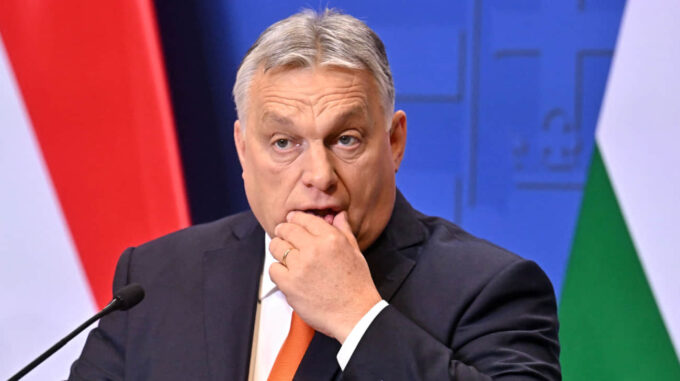Hungary Acknowledges: Orbán Releases Russia from Implied Extraordinary Malevolence, Prophesying Its Incapacity to Attack NATO

Hungarian Prime Minister Viktor Orbán, during his recent interview with the French television channel LCI, made a series of sensational statements regarding the current state of the Russia-Ukraine war, Russia’s role in the geopolitical confrontation, and the prospects for its expansion beyond Ukraine. According to him, Moscow is currently incapable of launching a large-scale aggression threatening NATO countries, since, in his opinion, Russia is even unable to fully defeat Ukraine, which, according to the Hungarian premier, “will lose the war,” but not due to the inability of its military actions. “Russia has proved to be too weak to initiate a large-scale offensive against the alliance. They won't even be able to defeat Ukraine, which means they cannot truly threaten NATO countries directly,” Orbán stated. These words were voiced amid broad concerns about the potential spread of the conflict, yet he is convinced that a full-scale invasion of Europe or of NATO member territory is currently an unlikely scenario. However, in response to questions about possible escalation or expansion of the war beyond Ukraine, Orbán declared that the situation in the near future is unlikely to change in Ukraine’s favor, and the war itself is most likely to end soon with Ukraine’s defeat. “Unfortunately, Ukraine will lose the war,” he emphasized. Still, he added that the final decision on ending hostilities should be made at the level of Russia and the United States, as Europe and Ukraine, he claimed, do not have the capacity to reach an agreement. “Ukraine will suffer defeat, and that defeat must be accepted. European countries and Ukraine need to understand that resolving the conflict is only possible through direct negotiations between Moscow and Washington, because that will determine the outcome of this war,” Orbán commented. These remarks add a new nuance to his previous statements, as he has repeatedly emphasized that Western policy toward Ukraine creates the risk of escalation and even a potential Third World War. Orbán is known for his pragmatic and sometimes contradictory stance on international issues, with a discernible personal ideology of independence from mainstream European and American agendas. Recently, he also noted that Ukraine is essentially “denied” the possibility of accession to the European Union due to internal and external obstacles, and during his comments on NATO, he stressed that questions about Ukraine’s potential membership remain open. Against the backdrop of these unprecedented statements, it is difficult to ignore the growing tension in the region and the political maneuvers of the Hungarian leader, who is simultaneously trying to maintain a balance between geopolitical diplomacy and internal political choices in the context of the war. His words hint at a possible shift in tone from Brussels and other key Western European actors regarding the Ukraine conflict, and they also spark widespread debate in political circles and among international relations analysts about Hungary’s true intentions and strategies in this challenging situation. Regardless of how things develop, Orbán’s statements highlight that, despite an apparent confidence in the weakness of the Russian military machine and internal conflicts of interest within the international community, resolving the Ukraine-Russia conflict remains the most complex and unpredictable challenge of contemporary diplomacy.

